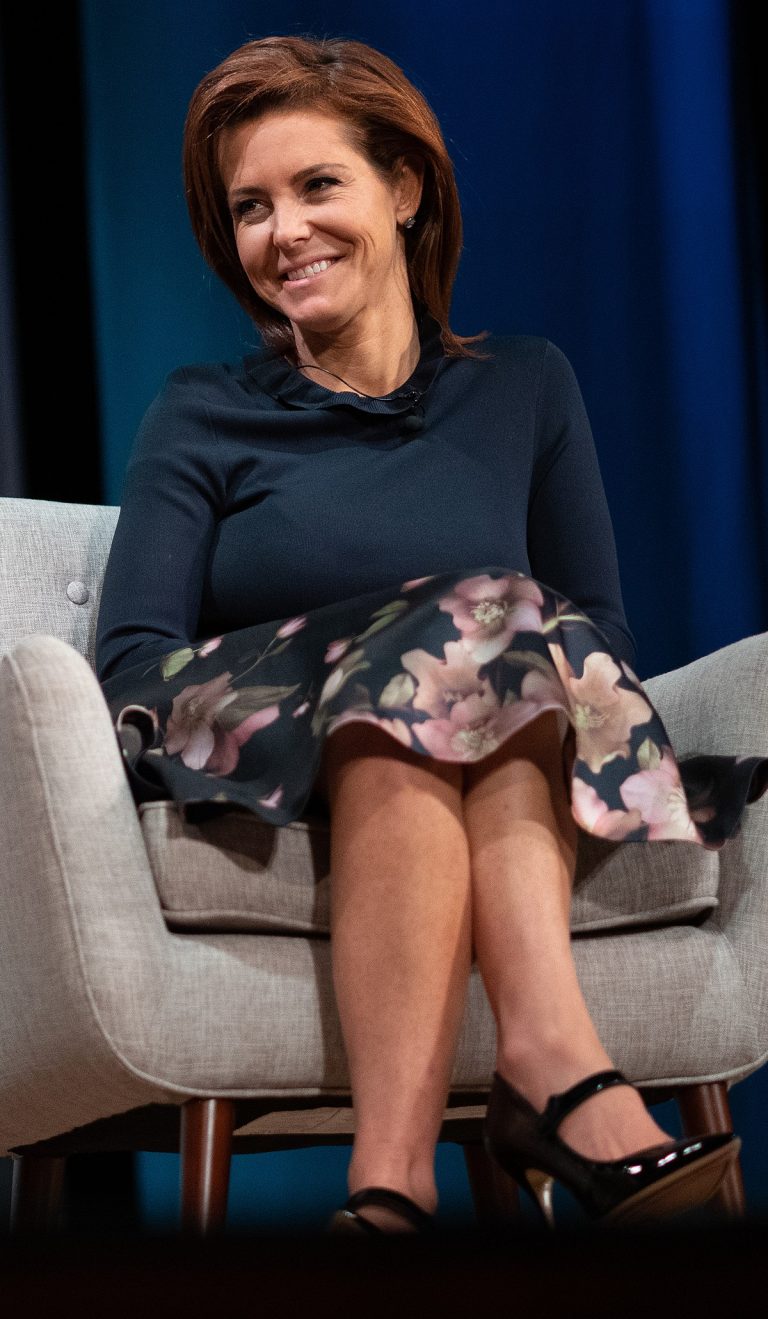Is Stephanie Ruhle truly facing a health crisis, or is it merely media speculation? A bold statement from the MSNBC anchor herself clears the air: I am in good health and have no serious illness to report. Despite recent rumors circulating online, Ruhle's public acknowledgment of her well-being aims to set the record straight. Her journey with dyslexia, candid discussions about her family’s bout with COVID-19, and even moments like collapsing at an event, all contribute to her reputation as both a resilient journalist and a transparent individual. Let us delve deeper into these aspects of her life that continue to shape her career.
Stephanie Ruhle, a prominent figure on MSNBC, recently returned to television after spending two weeks in isolation due to a case of COVID-19. During her absence, she took the opportunity to reflect on America's handling of the pandemic, expressing concerns over its systemic shortcomings. In an interview shortly after her return, Ruhle emphasized how her personal experience illuminated gaps within the nation’s healthcare infrastructure. She noted, The system failed me—not because I didn’t receive care but because accessing proper resources was unnecessarily complicated. This revelation underscores not only her professional commitment to investigative journalism but also her willingness to use her platform for broader societal commentary.
| Bio Data & Personal Information | Career & Professional Information |
|---|---|
| Name: Stephanie Ruhle | Current Position: Anchor and Senior Business Correspondent at MSNBC |
| Date of Birth: June 28, 1970 | Notable Shows Hosted: Stephanie Ruhle, MSNBC Live |
| Place of Birth: Pittsburgh, Pennsylvania | Awards & Recognitions: Emmy Award winner |
| Education: Bachelor's Degree in Communications from Penn State University | Previous Roles: Bloomberg Television correspondent, CNBC reporter |
| Family: Married with three children | Specializations: Business news, political analysis |
| Visit Official MSNBC Profile | |
Ruhle’s openness about her struggles with dyslexia has resonated deeply with many viewers. In a heartfelt letter addressed to students grappling with the same condition, she revealed her lifelong battle with the learning disorder. Dyslexia, she explained, initially posed significant challenges but ultimately became a source of strength. By simplifying complex information—a skill often attributed to dyslexic thinkers—Ruhle carved out a niche for herself in the competitive world of journalism. Her ability to break down intricate economic theories and political maneuvers into digestible content has earned her widespread acclaim among peers and audiences alike.
An unexpected moment in the spotlight occurred when Ruhle collapsed on the red carpet following the White House Correspondents’ Dinner. While alarming, the incident turned out to be non-serious, attributed to exhaustion rather than any underlying medical condition. Nevertheless, it sparked conversations around work-life balance in high-pressure environments such as broadcast journalism. Ruhle later addressed the episode publicly, thanking supporters for their concern while reinforcing her overall good health. Such transparency further solidifies her connection with her audience, who appreciate her honesty and authenticity.
In another poignant narrative, Ruhle shared insights gained from her family’s recent encounter with COVID-19. Alongside her husband and three children, she navigated the uncertainties of the virus firsthand. Reflecting on this period, she admitted feeling “scared” yet grateful for the outcome. Her reflections highlighted the importance of vaccination and proactive health measures, urging others to prioritize safety during uncertain times. Through her storytelling, Ruhle effectively bridges personal experiences with broader public health advocacy.
Meanwhile, tributes pour in for educator Ted Walch, whose influence extends far beyond traditional classroom boundaries. Described by Ruhle as someone who “changed my life,” Walch continues to inspire despite facing terminal illness. His legacy lives on through countless former students, including notable personalities who gathered recently to celebrate his contributions. As Ruhle prepares to introduce him on national television, she hopes to amplify his message of inspiration and resilience. The intersection of education and journalism exemplified here reinforces the power of mentorship across disciplines.
As Stephanie Ruhle continues to thrive professionally, her dedication to truth-telling remains unwavering. Whether addressing her own health issues, advocating for improved systems, or championing causes close to her heart, she embodies the essence of modern journalism. With each story she tells, whether through live broadcasts or social media posts, Ruhle fosters connections rooted in empathy and understanding. These qualities ensure her relevance in today’s fast-paced media landscape, where credibility and compassion are paramount.
For aspiring journalists and those curious about her journey, Ruhle serves as a testament to perseverance. From overcoming dyslexia to rising ranks in one of America’s leading networks, her career trajectory offers valuable lessons. Her emphasis on integrity, coupled with a knack for simplifying complexity, sets her apart in an industry saturated with voices. As she moves forward, one thing remains certain: Stephanie Ruhle will continue shaping narratives that matter most to society.



